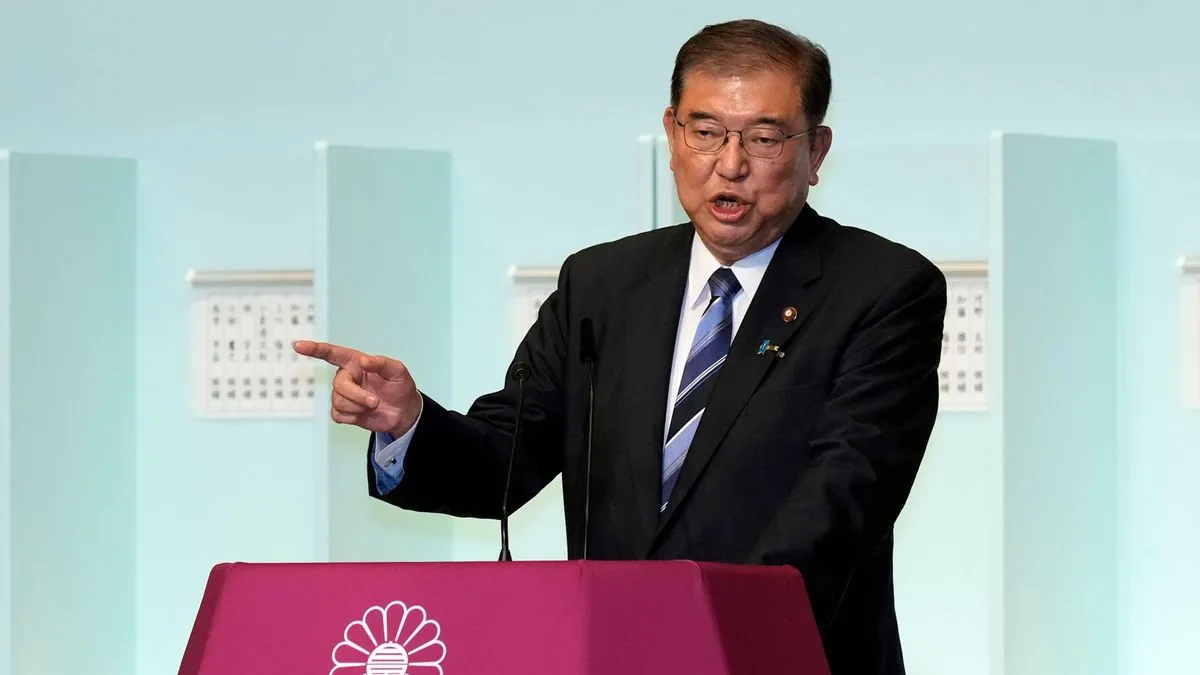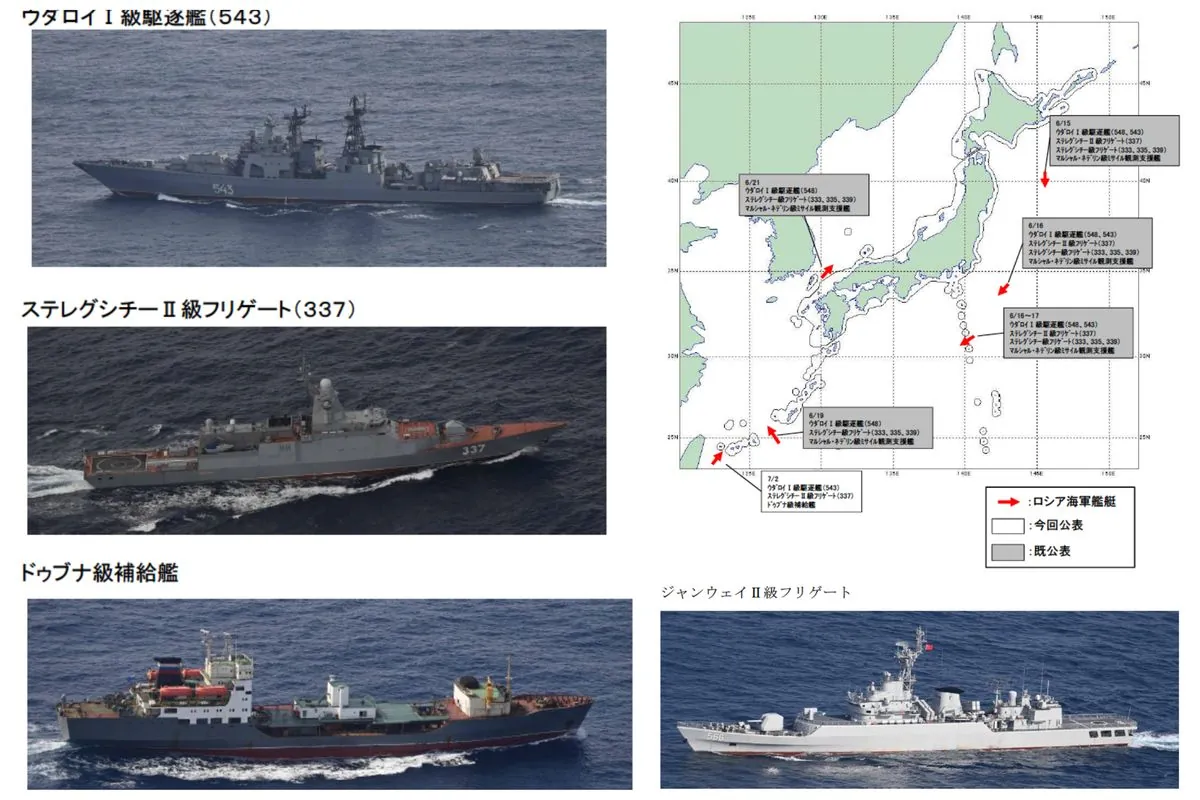Japan's Ishiba Proposes 'Asian NATO', Sparking Diplomatic Debate
Shigeru Ishiba, Japan's potential next PM, suggests creating an "Asian NATO" and stationing Japanese troops in Guam, raising concerns about U.S.-Japan alliance changes and regional security dynamics.

Shigeru Ishiba, recently elected leader of Japan's Liberal Democratic Party, has proposed significant changes to Japan's security policy, including the creation of an "Asian NATO" and modifications to the U.S.-Japan alliance. These suggestions have sparked a diplomatic debate and raised concerns about potential challenges in the region.
Ishiba's proposal for an "Asian NATO" comes in response to perceived threats from China's increasing military activities in the region. The concept aims to create a collective self-defense system in Asia, similar to the North Atlantic Treaty Organization established in 1949. This proposal reflects growing concerns among Japanese politicians about China's military presence near Japanese islands.

However, the United States has already dismissed the idea of an Asian NATO as premature. Daniel Kritenbrink, the Assistant Secretary of State for East Asia and the Pacific, expressed skepticism about the proposal. This reaction highlights the potential diplomatic challenges Ishiba's ideas may face.
Ishiba argues that the "relative decline of U.S. might" necessitates the formation of an Asian treaty organization. This perspective underscores the changing dynamics in the region and the perceived need for a new security framework.
The current U.S.-Japan security relationship, established after World War II, involves significant U.S. military presence in Japan. The United States maintains approximately 50,000 troops, an aircraft carrier, and fighter jets in the country, providing protection under its nuclear umbrella. This arrangement has been a cornerstone of Japan's defense policy since the adoption of its post-war constitution in 1947, which limits the country's military capabilities.
Ishiba's proposed changes to the alliance include allowing Japan to station troops in Guam, a U.S. territory, for the first time since 1944. This suggestion represents a significant shift in the traditional structure of the U.S.-Japan security relationship.
"The absence of a collective self-defence system like NATO in Asia means that wars are likely to break out because there is no obligation for mutual defense."
The proposed "Asian NATO" would potentially combine existing diplomatic and security arrangements, including:
- The Quad (Quadrilateral Security Dialogue) involving Japan, the U.S., Australia, and India
- The AUKUS agreement between Australia, the UK, and the U.S.
- Japan's deepening security cooperation with South Korea
Ishiba's plan also suggests the possibility of shared control over U.S. nuclear weapons as a deterrent against Japan's nuclear-armed neighbors. This proposal comes in the context of China's nuclear capabilities, which were first demonstrated in 1964.
The Liberal Democratic Party, founded in 1955, has been at the forefront of Japan's security policy discussions. Ishiba's proposals represent a continuation of this trend, building on Japan's adoption of its first National Security Strategy in 2013 and the consistent increase in its defense budget since that year.
While Ishiba's ideas aim to address perceived security challenges, they have also raised concerns about potential disruptions to existing alliances. The U.S. has been pressing for closer ties in the region, and Japan has been fostering security cooperation with various partners, including European nations like Britain and France.
As Japan navigates these complex security dynamics, the debate surrounding Ishiba's proposals is likely to continue, reflecting the ongoing challenges and evolving strategies in Asian regional security.


































